GREENberg bLAWg Posts
Visit the Full BlogWhere the Law and the Environment Connect. Tox of the Town is a blog written by attorneys in Greenberg Glusker’s Environmental Law Group. With years of legal, technical, and business know-how experience, we look forward to providing our readers with timely updates on environmental issues. Subscribe to our blog today to receive updates on changing environmental laws, regulatory and compliance issues, ongoing litigation, and more.

Back to School for Administrators: New K-6 Ban List and Laws Regulating Art Supplies
As schools reopen and in-person learning resumes, school teachers and administrators should be aware of laws regulating the purchasing of art supplies in schools. A preview of some of these laws is as follows: The California Education Code (Cal. Education Code § 32064, et seq. ) prohibits the purchase...
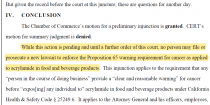
The Ever-Shifting Landscape of Prop 65 Acrylamide Regulation
It has thus far been a noteworthy year for acrylamide, a Proposition 65-listed substance that naturally forms in the cooking and heating of many plant-based foods. Both the courts and the California Office of Environmental Health Hazard Assessment (“OEHHA,” the agency tasked with enforcing Proposition 65’s warning requirements) appear to be...

Offshore Drilling Project Dealt Setback by Ninth Circuit
Earlier this month, the Ninth Circuit dealt a setback to oil and gas interests, vacating the U.S. Department of the Interior’s Bureau of Ocean Energy Management (BOEM)’s approval of the “Liberty Project” – a offshore drilling and production facility located off the coast of Alaska in the Beaufort Sea...
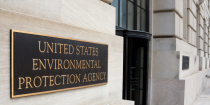
Trump Methane Rollbacks May Spark Litigation, Hinder Greenhouse Gas Regulation
Originally published on Bloomberg Law The Trump administration’s new final rules governing methane emissions in the oil and gas industry culminate a multi-year process to roll back limitations promulgated toward the end of the Obama administration. Though the rules address new sources, the changes may directly affect EPA regulation...
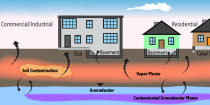
California issues draft guidance for vapor intrusion to indoor air
California environmental agencies recently issued a draft vapor intrusion guidance document that will significantly impact the investigation and remediation of environmentally impacted properties by owners, operators and potential buyers. The guidance document will also impact real estate deals and development involving those properties. The California State Water Resources Control...
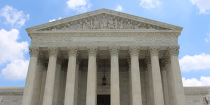
Atlantic Richfield Co. v. Christian – Perpetuating the Cycle of Supreme Court Environmental Law Decisions that Spark Litigation and Confusion
The U.S. Supreme Court has a history of rendering muddled decisions when interpreting key environmental statutes, and with its decision in Atlantic Richfield Co. v. Christian et al., history repeats itself. Case Overview The underlying case has a long procedural and factual background, having ping-ponged up to the Montana...
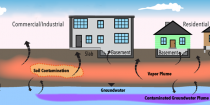
SF Regional Board attempts to clarify vapor intrusion approach
The San Francisco Regional Water Quality Control Board recently issued a fact sheet summarizing changes to its approach to remediating environmental impacts and mitigating vapor intrusion (VI) at properties impacted with volatile organic compounds (VOCs). This follows a January 2019 update to the Board’s vapor intrusion environmental screening levels—which...
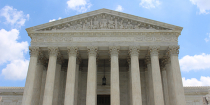
Superfund Case in the U.S. Supreme Court - Unintended Consequences?
In a recent interview with Ellen Gilmer at E&E News, I provided insights about a new case on the Supreme Court docket involving the Anaconda Smelter Stack and surrounding Superfund area in Montana. Overall, the article discussed the potential for unintended consequences if landowners in the long-running dispute over the Superfund...

Even Your Parking Structure Violates Prop 65
The Prop 65 “Clear and Reasonable Warnings” updates that became effective in August 2018 contain lots of traps for the unwary, including one that you might not have noticed: tailored Prop 65 warnings are required at each of the public entrances to your enclosed parking facilities. To avail your regulated...

Superior Court Invalidates Hexavalent Chromium Drinking Water Standard
Earlier this month, Judge Christopher E. Krueger of the Sacramento Superior Court issued an order invalidating the Maximum Contaminant Level (MCL) for hexavalent chromium . The California Department of Public Health (“DPH”) established an MCL of 10 μg/L, or parts per billion (ppb), pursuant to a rulemaking effort that concluded in 2014...

RCRA Update: New Hazardous Waste Generator Rule Goes Into Effect in May 2017
EPA’s final Hazardous Waste Generator Improvements Rule (“Rule”), which goes into effect on May 30, 2017, contains approximately 60 revisions to the hazardous waste generator regulatory program. The revisions focus on improving efficiency, and compliance for hazardous waste generators—which is quite appropriate given EPA’s estimated hazardous waste non-compliance rate...

Shell Pays Big for Double Dipping with the UST Fund
Last week, the California State Water Resources Control Board (State Water Board) announced that it permanently banned 100 of Shell Oil Company’s underground storage tank (UST) claims from the California UST Cleanup Fund (Fund) for allegedly claiming reimbursement through false or misleading statements on its claim forms. The State...
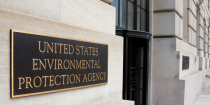
U.S. EPA’s Proposed Rule Would Modernize NPDES Regulations
Earlier this month, the United States EPA proposed a rule (“Proposed Rule”) that would update and revise National Pollutant Discharge Elimination System (“NPDES”) regulations. Rather than reopening the existing NPDES regulations for comprehensive revision, the Proposed Rule would make “specific targeted changes to the existing regulations” that align the...

California Supreme Court Finds that a Public Agency Cannot Inadvertently Waive Attorney-Client and Work Product Privileges
Last year, I wrote about the Second Appellate District case of Ardon v. City of Los Angeles . In Ardon , the appellate court found that a public agency can waive statutory privileges that it otherwise would have if it produces privileged documents in response to a California Public Records Act...

In the Heart of the Rainy Season: The New (Stayed) Clean Water Rule Covers Vernal Pools in California
After years of drought, the El Niño storms have been bringing much-needed rain and snow to California–albeit in quantities significantly less than we hoped for thus far. In addition to the anticipated snowpacks, flowing rivers, and replenished reservoirs, the California landscape has been marked by the return of ephemeral...
Proposed Rule Adding Vapor Intrusion Component to Hazard Ranking System Published in the Federal Register Today
Today the U.S. Environmental Protection Agency published a proposed rule in the Federal Register which would add a vapor intrusion component to the Hazard Ranking System, the system EPA uses to evaluate sites for placement on the National Priorities List (“NPL”). We forecasted and discussed the publication of this...
Proposed Rule Adding Vapor Intrusion Component to Hazard Ranking System Will Likely Appear in Federal Register This Month
A proposed rule that would add a vapor intrusion component to the Hazard Ranking System (“HRS”), the primary screening tool for the CERCLA National Priorities List (“NPL”), is scheduled for publication in the Federal Register this month. NPL listing is a prerequisite for designation as a federal Superfund site...
Required Action on the Horizon for California Consumer Products Companies
Yesterday, the Department of Toxic Substances Control (“DTSC”) released its draft Stage 1 Alternatives Analysis Guide (“Guide”) under the California Safer Consumer Products program. Public comments are being accepted on the Guide through October 24, 2015, and DTSC is specifically asking commenters to “provide the names of tools, methods, approaches, and data sources not already...
Can a Public Agency Inadvertently Waive Attorney-Client & Work Product Privileges? First and Second Appellate District Split on the Issue
In January, I wrote about the Second Appellate District case of Ardon v. City of Los Angeles . In Ardon , the court found that a public entity can waive statutory privileges that it otherwise would have if it produces privileged documents in response to a California Public Records Act (PRA...

State Water Board Approves Composting General Order
Earlier this month, the California State Water Quality Control Board (“State Water Board”) approved a General Order for Waste Discharge Requirements (“WDRs”) for composting operations, which will streamline and standardize permitting processes and regulate water quality at new and existing composting facilities. While the General Order was approved with...

Insurance Protection for Losses May Be Freely Assigned in Connection with a Corporate Sale or Reorganization
On August 20, 2015, the California Supreme Court handed down its much-anticipated decision in Fluor Corporation v. Superior Court (Hartford Accident & Indemnity Company) . The court held that Insurance Code §520, a seldom cited provision of the Insurance Code dating back to 1935, bars an insurer from refusing...
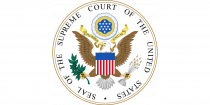
EPA Must Consider Costs in Deciding Whether to Regulate HAPs From Power Plants
Last week, in Michigan v. EPA , the U.S. Supreme Court held that it was unreasonable for the U.S. Environmental Protection Agency (“EPA”) to refuse to consider costs in connection with its finding that it was “appropriate and necessary” to regulate hazardous air pollutant (“HAP”) emissions from power plants...

State Water Board Continues Deadline for Compliance with New California Industrial General Permit for Stormwater until August 14, 2015
As an update to a previous write-up on the deadline for compliance with the new California Industrial General Permit for Stormwater (General Permit), the State Water Resources Control Board (State Water Board) has continued the deadline for registration and compliance from July 1, 2015 to August 14, 2015 . In a...
Deadline For Compliance With New California Industrial General Permit For Stormwater Is A Week Away (July 1, 2015)
On July 1, 2015, the new California Industrial General Permit for Stormwater (General Permit) will take effect and along with it come a host of new compliance obligations. Chief among those obligations is the completion and submission of a notice of intent (NOI) to be bound by the new...

Public Entities Can Inadvertently Waive Privilege in Response to a Public Records Act Request
California’s Public Records Act (PRA) law requires public entities to make their public records open for inspection and copying. Environmental practitioners often use PRA requests as a tool to obtain information regarding a contaminated or a potentially contaminated site. In a recent case, Ardon v. City of Los Angeles...

The Sunset Will Last a Little Longer - UST Fund Extended
On September 25, 2014, Governor Brown signed SB 445 (Hill) Underground storage tanks; hazardous substances: petroleum: groundwater and surface water contamination into law (UST Law). The UST Law was an urgency measure that took effect immediately. The UST Law makes changes to the Underground Storage Cleanup Fund (UST Fund...

CEQA Lead Agencies Do Not Waive Defense that CEQA Did Not Apply Despite Proceeding under CEQA
Recently, the court in Rominger v. County of Colusa found that a lead agency which approved a mitigated negative declaration for a project, can take the seemingly inconsistent position that the proposed project was not a California Environmental Quality Act (CEQA) project or was exempt from CEQA when its...
Substantive Dispute over Land Application of Biosolids Remains Unresolved
Form over substance continues to obscure the substantive issue presented in the case of the City of Los Angeles (City) vs.Kern County (County) . At its core, the dispute involves the land application of biosolids. Biosolids are organic material produced during the processing and treatment of wastewater. Historically, waste...
City’s Decision to Not Prepare an EIR Upheld Under Substantial Evidence Standard
Earlier this month, in Latinos Unidos De Napa v. City of Napa, the California Court of Appeals upheld the city of Napa’s determination that it did not have to prepare an environmental impact report (EIR) under the California Environmental Quality Act (CEQA) when enacting minor changes to its general plan and...
ASTM Issues New Standard For Phase I Environmental Site Assessments
On November 6, 2013, ASTM revised its standard for conducting Phase I environmental site assessments, known as Standard E1527-13 (entitled “Standard Practice for Environmental Site Assessments: Phase I Environmental Site Assessment Process”). ASTM E1527-13 is the first revision to the ASTM Phase I standard since its 2005 revision of the standard (known as...

